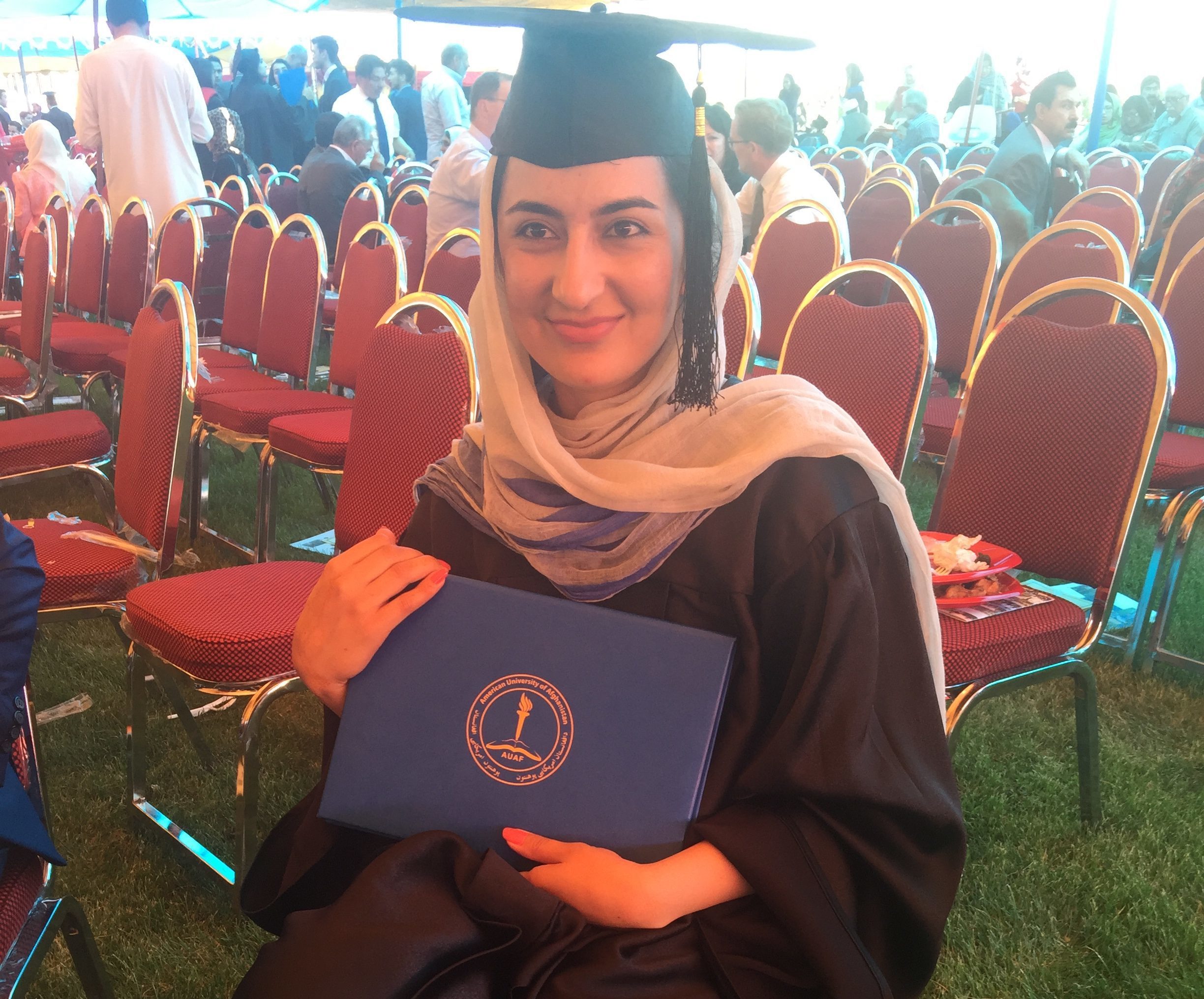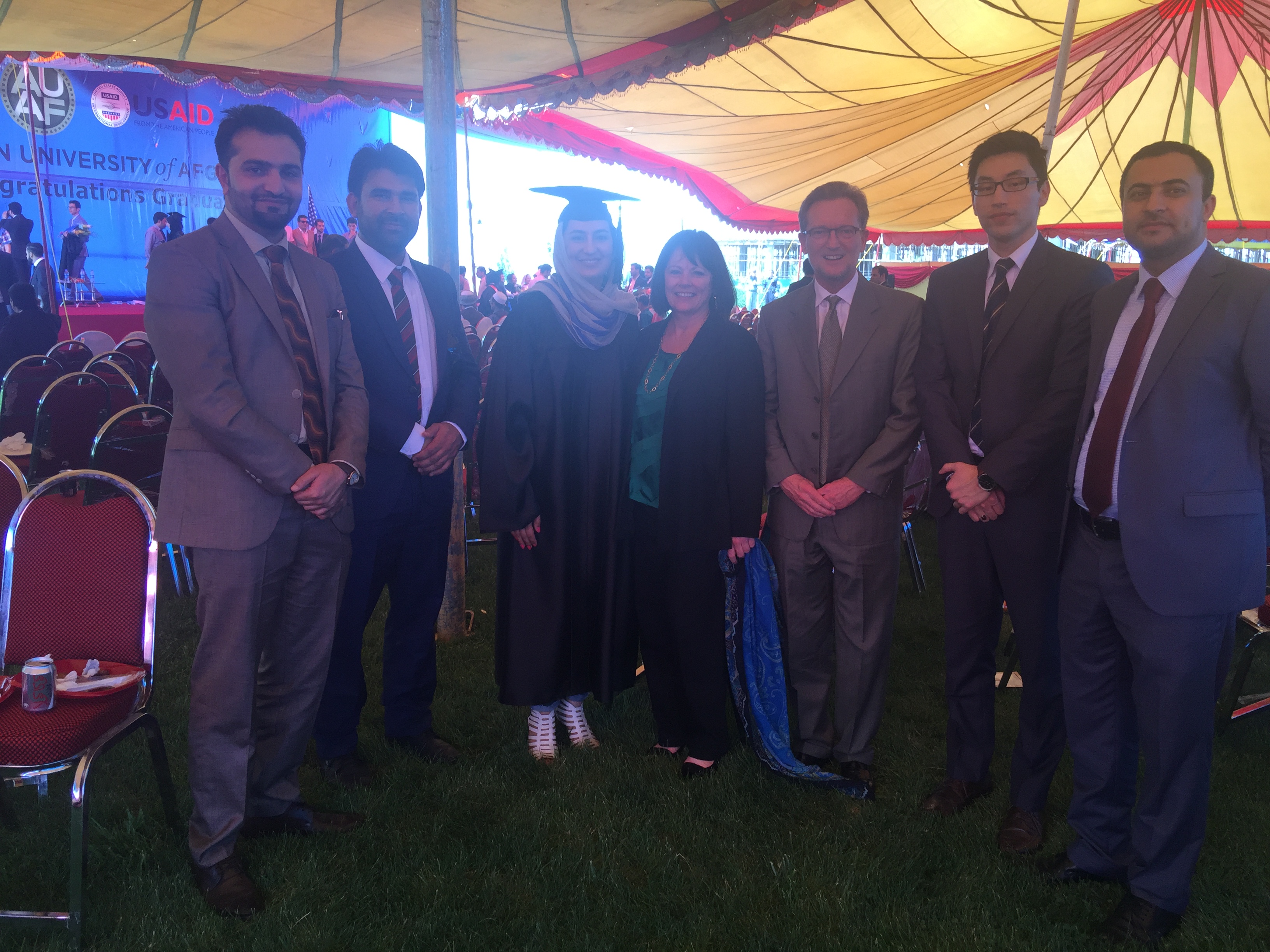February 1, 2017
This past May, Homa Usmany became AUAF’s first female law graduate. She also holds a Diploma in Business Administration from the Afghan Canadian Community Center (ACCC). Since graduation, she has become the executive director of Leading Entrepreneurs for Afghanistan’s Development (LEAD), an organization that aims to advance Afghan women’s economic interests and increase female entrepreneurship.
We had an opportunity to correspond with Usmany and ask her about her experiences at AUAF, the lessons she has learned, and her vision for the future of female education in Afghanistan.

What attitudes did your peers and your professors have towards female education?
Life was never easy for me or for any other girl in Afghanistan, especially in the south part where I was born and raised. I was lucky enough to get out of that scenario and turn my dreams into reality. Life was totally different at AUAF. This academic place and culture is structured in a way where every human is treated based on humanity, not gender.
Who were some of your most memorable moments at AUAF?
As I mentioned, the environment was totally different at AUAF. Outside the academic curriculum, we had sports and fun programs for both male and female students, and that was what made AUAF a better place for us. In addition, law students were lucky to have wonderful professors and practical courses such as the clinical education class, where I, along with 3 other students, conducted research on the labor law of Afghanistan for the Business Innovation Hub at AUAF. It was a very wonderful experience for me to be part of that research and then stand in front of a big audience of businesspeople and employees and give a presentation on the law.
How has AUAF prepared you for your current work?
AUAF helped me a lot. Of course the quality of education that AUAF provides is unique. They train students to be able to challenge the outside world and represent themselves as who they really are. I’m working now as the executive director for LEAD. AUAF prepared me to not only help myself but to become able to help other women and advocate for their rights.
What do you think your graduation speaks about the progress that has been achieved in female education in Afghanistan? What do you think of the progress at AUAF with female education?
I believe change happens gradually, not overnight. When I decided to travel for my studies from my hometown, it was a big issue for my family. But this opened the door for my sisters, who too came to AUAF, and my family happily accepted. Other girls from my town are now studying at AUAF. There are, I think, around 45 female law students now.
What advice or words would you have towards other female students at AUAF/anywhere in Afghanistan?
I’m working with 750 female business owners and with many more startups and new businesses, and my advice for all of these women always is do not limit yourself, and do not build boundaries around yourself. The more you strive and struggle the more you will be able to break those boundaries and be the person who you deserve to be.

About ALEP: Founded in 2007, the Afghanistan Legal Education Project (ALEP) at Stanford Law School develops innovative legal curricula to help Afghanistan’s universities train the next generation of lawyers and leaders. ALEP is one of the projects under Stanford Law School’s Rule of Law Program. For more on ALEP, see: https://law.stanford.edu/alep
About Rule of Law Program: Established in 1999, the Stanford Law School’s Rule of Law Program is the University’s vehicle for promoting the study and practice of international rule of law and development. The program serves as the scholastic and administrative umbrella for Rule of Law Projects in various countries. For more on the program, see: https://law.stanford.edu/rule-of-law-program/
